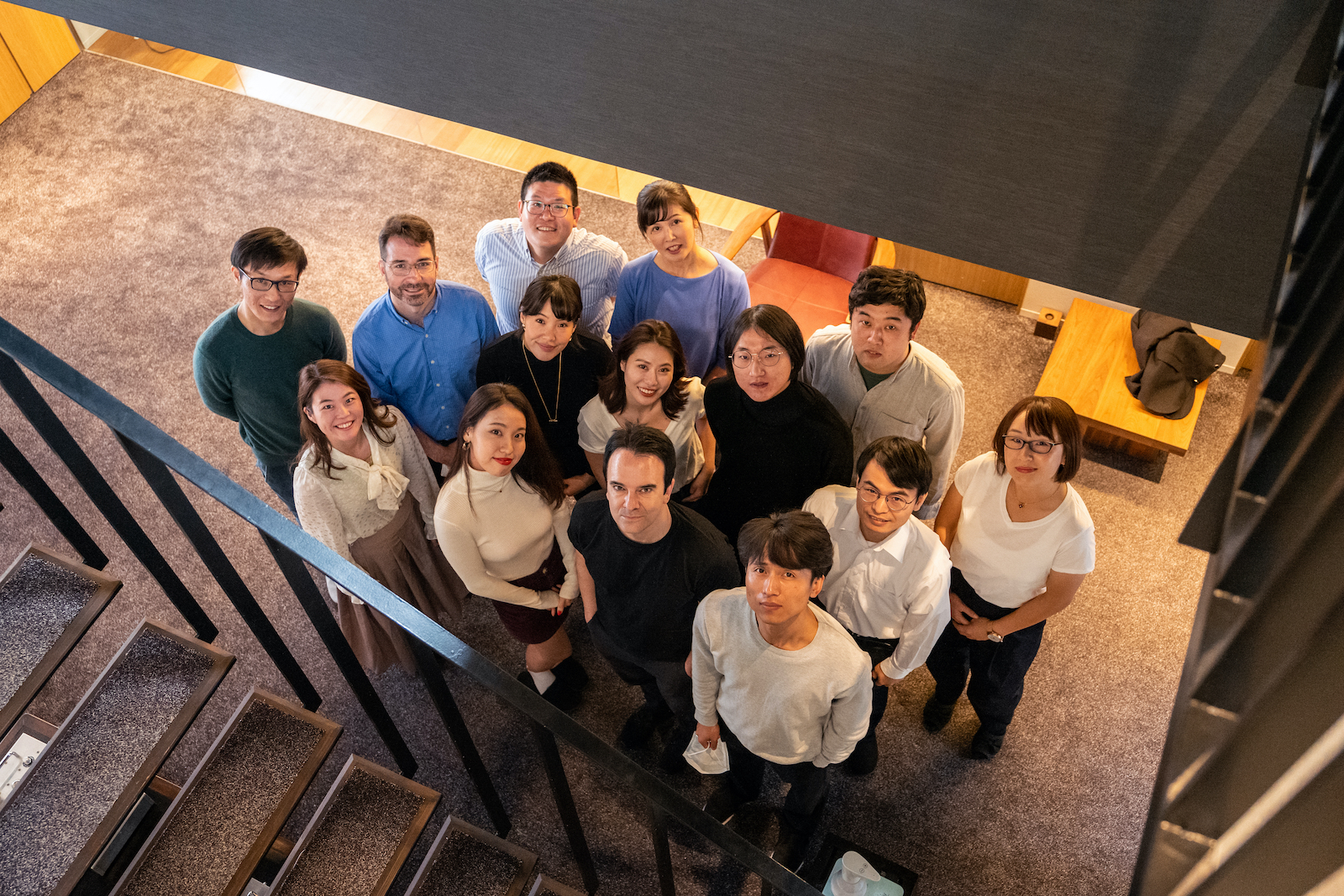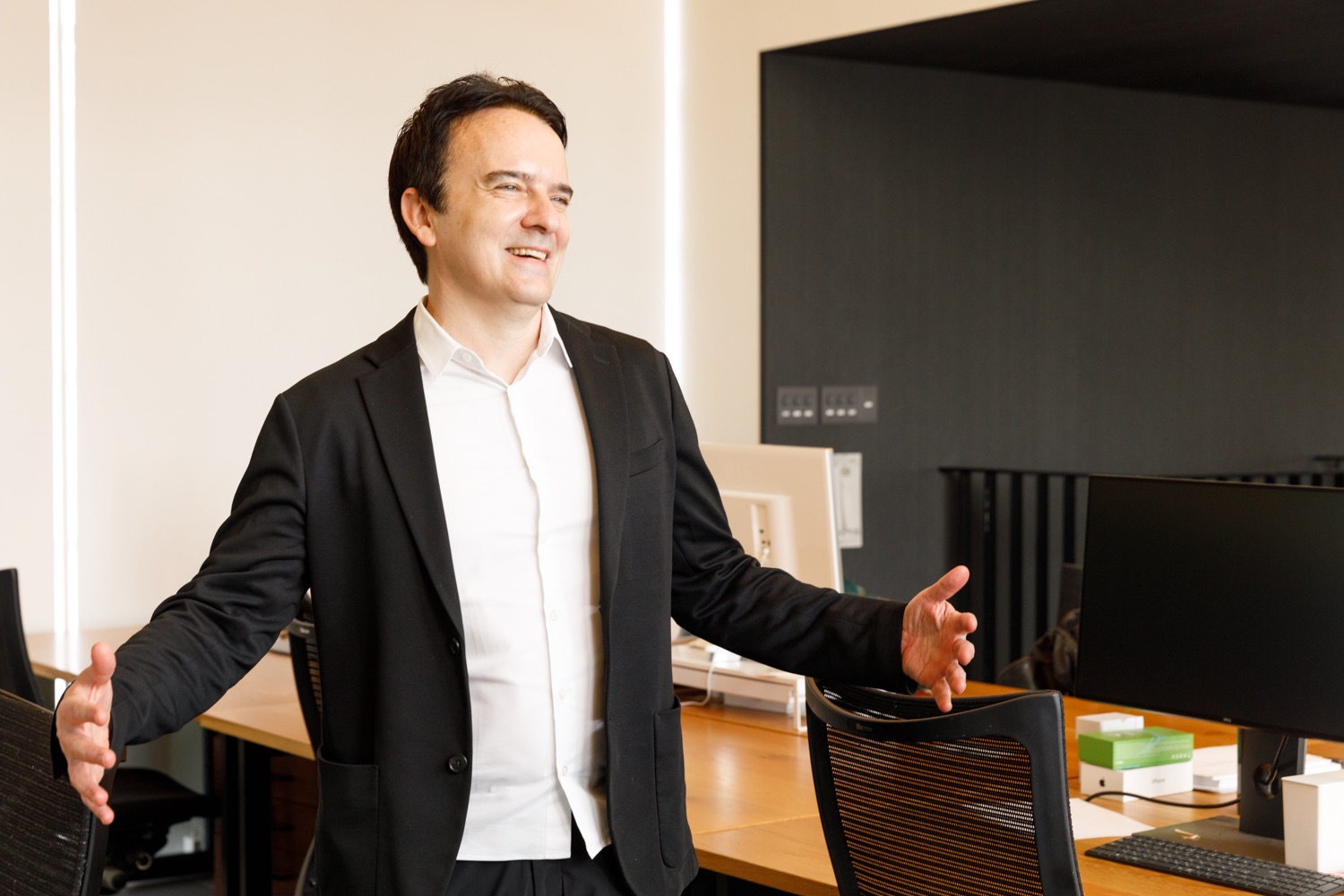When American Anatole Varin first came to Japan, he had no idea that, some 20 years later, he would lead one of the most successful tech companies by a foreign founder in the country. In a wide-ranging interview, Varin speaks about founding The Plant Co Ltd, an E-commerce, content management and digital innovation company. He also touches on the challenge of gaining clients, managing diverse teams, and navigating the COVID-19 pandemic.
What is your background?
I was born in New York, and raised in Oregon, on the west coast of the United States. I graduated in economics and linguistics. In university, I had the chance to study abroad, and realized I like the experience. So, in my early 20s, I spent a few years living in different countries: France, Spain, Brazil and Turkey. That’s how I first came to Japan and supported myself, by teaching English. In my second year here, I had an opportunity to apply for a scholarship. I was living in Aichi in Nagoya at the time, when I enrolled on a master’s degree in commerce at a university there.
How did you go from grad school student to entrepreneur?
I met Peter Wilson and Erik Gain, who are cofounders of GaijinPot, a jobs portal, which eventually became GPlusMedia. We worked on that project together, and I built out their platform. After graduating university, I worked as a university professor for a couple of years, teaching a variety of courses — computer skills, journalism and so on. It was during that time that my cofounders and I started making a bit of money, and started to build the business.
How did the transition from GPlusMedia to The Plant happen?
GPlusMedia was doing well as a media company, but I was more interested in developing new products and services that were focused on technology. In the beginning, it was just me and one other engineer at The Plant, which I founded in 2005. I thought I was quite clever, having developed GPlusMedia as a successful company, and thought it would be easy to make another B2C service that was its equal or better, but, actually, I failed many times. Then, I pivoted to B2B work, because I had a lot of people asking me to help them on B2B projects.
Was the transition from a B2C platform to a B2B one smooth?
I had a few stabs at making B2C and B2B products. I did a service called Asoboo, which was an online social network. The timing was bad though, or my execution was bad — or both. I spent several years trying to make that work, but I don't think I made a penny from it. I also worked on a picture sharing service that was launched slightly after Instagram was launched. And, actually, most of my money was spent on a collaboration software product, called Qortex — which was an internal communications system. So I tried my hand at several products which didn't pan out.

You have a diverse team of around 60 staff. How do you manage cultural diversity?
We have a lot of nationalities: Americans, Japanese, Korean, Chinese and more. Because we have an international environment, the main thing is to hire people who, of course, have the skills, but also have a good personality that we can work with well. We try to create a culture where we are high performing people trying to do good work and we’re very professional. I feel that we have a great deal of respect for each other, and there are no nationalistic or cultural things that become a problem. There are some minor things that are more amusing than serious, for example: in China, it’s really common that, after lunch, you take a nap. So one guy, when he came to the Tokyo office, would take a nap on his desk after lunch — and it felt a little bit weird for us. But, because we wanted to respect his napping, we made a place for him where he could take a nap and not disturb the rest of the office, which is an open plan space.
What is staff retention like at your company?
We’ve been able to find, hire and retain really smart people — and I’m happy that most of them have decided to stick with us for a very long time. And retention is something that I think is important because it takes a long time for people to understand how things work on a technical and non-technical level; to understand the company culture; to understand how we can communicate with each other; and to understand the technology stack.
What issues have you faced when acquiring B2B customers in Japan?
This is similar to hiring staff in that it’s almost all been through our network. Fortunately, we’ve never had to do outbound sales. That was very fortunate. But, I guess one of the reasons is that we’re making systems — which are key and important parts of a company — and it does require a lot of trust. Especially for large companies, it’s critical that the people you work with have trust in you; that they know you do good work.
How has COVID-19 affected your business and work life?
I think it’s been kind of mixed. One part that I think of as negative is when hiring and onboarding new people — the human element of that: not being able to talk to people, or not being able to go out to lunch and have these kinds of conversations where you get to know people. But in some ways, it’s been positive in that it challenges us in a good way. Before COVID-19, companies tended to measure one aspect of performance, participation or engagement — such as being present in the office. That’s gone now. So it challenges you to evaluate people on performance — and what they actually do.
Our office is still open, but I’m the only one that comes in everyday. A lot of staff now find that they can save an hour on transportation—and they can use that time in more productive ways. And actually, an open plan office is not necessarily the best for the type of work that we do, because you need to focus and concentrate, and having a lot of people running around is not necessarily the best thing for that. So I think a lot of people’s personal productivity has increased by having the privacy and space to focus and not be interrupted. Also, when hiring, we don't feel bound to particular locations — like Hangzhou, Tokyo or Canberra, where we have offices. Since location doesn't matter so much, it opens up hiring possibilities to people that aren’t necessarily living next to you.
How do you see the future of work in a post-COVID-19 world?
Companies like ours will never go back to the way it was. Companies and individuals will examine when in person and remote work is most valuable, and be more conscious about when it is worth their time to meet in person. I guess we will generally become more global, as we’re not limited by geography anymore, even if you’re a domestic company looking to hire people. And we will become more focused on actual employee value, rather than just symbols of it. From the employee’s perspective, they will want more freedom of how, where and when they work—there are a lot of people enjoying the new work-life balance, and the option of working from home.

What advice would you give entrepreneurs thinking of entering the Japan market?
I think there is a lot of opportunity in Japan’s B2B technology space in particular. A lot of businesses here are using systems that are a bit antiquated, so there is a lot of room for improvement. From my experience, making relationships are really important — so work on having as many connections as you can before and after you come here. There is a hesitancy to working with foreigners, but I think that can be overcome. Being empathetic with what it means for Japanese companies to make purchasing decisions and to have to justify the decisions is quite important. I guess you have to put yourself on the other side and ask, “What would it take me to overcome my hesitancies to deal with a foreign company in my own country?” — and use that as a guide to your approach in this market.
What inspires you, speaking personally?
We have a lot of smart people working on interesting projects for really great clients — and we’re doing mission-critical projects for them. Being able to take part in that causes a bit of pressure on me to do my bit; I can’t let them down. Also, since COVID-19 begun, I’ve found that doing exercise in the morning has been quite nice to clear my head and make sure that I’m sharp for the day.
After 20 years of working in Japan, what are some of your main takeaways?
One thing that applies to any country is to create trust by delivering on your promises. Trust is the most important thing in business. Speaking specifically about Japan, it’s important not to make excuses or blame others. I think in our Western culture it is common to say, “Oh, it’s not me; it’s his fault, or whatever.” But in Japan, excuses are not well appreciated. That’s not to say you can never use them, as sometimes you do have a legitimate reason to blame something else for your failure, but, as a general rule, it’s better to suck it up and take the responsibility. And when something does go wrong, it’s important to be extremely responsive and be on it pretty quickly. So, I think they do permit mistakes, but they want you to be proactively managing them and trying to find solutions.
- External Link
- https://theplant.jp/
 Take our user survey and make your voice heard.
Take our user survey and make your voice heard.















5 Comments
Login to comment
bokuda
There's plenty of reasons to fear Japan
Toshiba, Olympus, Sonny, Nissan, ...
Stay low, and keep your assets far away from Japan.
Thomas Tank
Haven't heard THAT one for awhile! Got a lot of hookups with that site! Thank you, Anatole!
JJ Jetplane
@Kentarogaijin
That's right Kenta, you tell them. The whole idea that standards or the rule to something has exceptions is just ludicrous. This guy is clearly the normal for all foreigners in Japan. Anyone that can't achieve that level at a minimum has something wrong with them.
Pukey2
I realized that too when I was working in the same room as mostly mainland Chinese for a while.